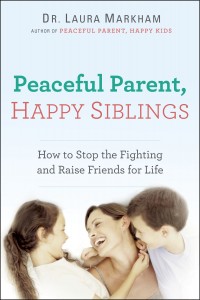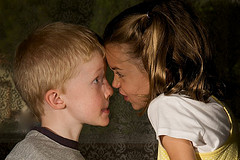 It’s really easy to get down on yourself for behaving regretfully toward your child. What’s hard is forgiving yourself because you’re human and making amends.
It’s really easy to get down on yourself for behaving regretfully toward your child. What’s hard is forgiving yourself because you’re human and making amends.
Repairing mistakes is one of the best skills you can teach your child. Isn’t this what we want them to be able to do? Repairing, apologizing, owning up and being accountable for your behavior is the sign of a strong, responsible person—exactly what you want your child to become.
But it’s hard for many parents to own mistakes and make repairs. When you have learned through your childhood that apologizing, showing vulnerability by admitting mistakes is a sign of weakness, it is hard to do it with your child. It can feel like admitting defeat, losing authority, giving in. But the opposite is true.
Coming down off a righteous pedestal to apologize, to say I see it differently now and wish I hadn’t said what I did, to admit wrong-doing, is not backing down or being inconsistent and wishy-washy. On the contrary, it is the powerful thing to do.
 Vulnerability does not equal weakness. Vulnerability Read more…
Vulnerability does not equal weakness. Vulnerability Read more…








 If you want your children to become respectful, responsible people, you must model that behavior. With poor boundaries, this is hard to do.
If you want your children to become respectful, responsible people, you must model that behavior. With poor boundaries, this is hard to do.
 Q. My three-year-old has a very big issue with sharing and hogging. She has an 18 mo. old sister who is not allowed to touch anything. I understand that my daughter still is having a hard time with her arrival, she has to share me, she doesn’t get to have me all to herself, she doesn’t even get to read books alone with me and on top of it all I am three times as tired, have to do a lot more chores, can’t play with her at the drop of the hat, and she doesn’t get to have all of my adoration just for her. I still feel really guilty about that. At first I thought, fair enough the toys were hers, so I opted to buy my youngest toys for herself. I told my eldest and explained before we bought anything that I was buying for her sister so she doesn’t have to touch hers. She agreed but once the toy is bought she wants to have it and play with it. She gets so
Q. My three-year-old has a very big issue with sharing and hogging. She has an 18 mo. old sister who is not allowed to touch anything. I understand that my daughter still is having a hard time with her arrival, she has to share me, she doesn’t get to have me all to herself, she doesn’t even get to read books alone with me and on top of it all I am three times as tired, have to do a lot more chores, can’t play with her at the drop of the hat, and she doesn’t get to have all of my adoration just for her. I still feel really guilty about that. At first I thought, fair enough the toys were hers, so I opted to buy my youngest toys for herself. I told my eldest and explained before we bought anything that I was buying for her sister so she doesn’t have to touch hers. She agreed but once the toy is bought she wants to have it and play with it. She gets so  Wouldn’t it be nice if your Mother’s Day gift from your children would be their promise never to fight again and to love each other always. As much as we try for sibling love and harmony, we cannot make it happen. But we can influence their relationship, their treatment of one another and the respect and support they give each other. In her new book, Peaceful Parent, Happy Siblings, Dr. Laura Markam shows us step by step, complete with dialogue, how to stop the fighting and build thoughtful, considerate connections between our children.
Wouldn’t it be nice if your Mother’s Day gift from your children would be their promise never to fight again and to love each other always. As much as we try for sibling love and harmony, we cannot make it happen. But we can influence their relationship, their treatment of one another and the respect and support they give each other. In her new book, Peaceful Parent, Happy Siblings, Dr. Laura Markam shows us step by step, complete with dialogue, how to stop the fighting and build thoughtful, considerate connections between our children.